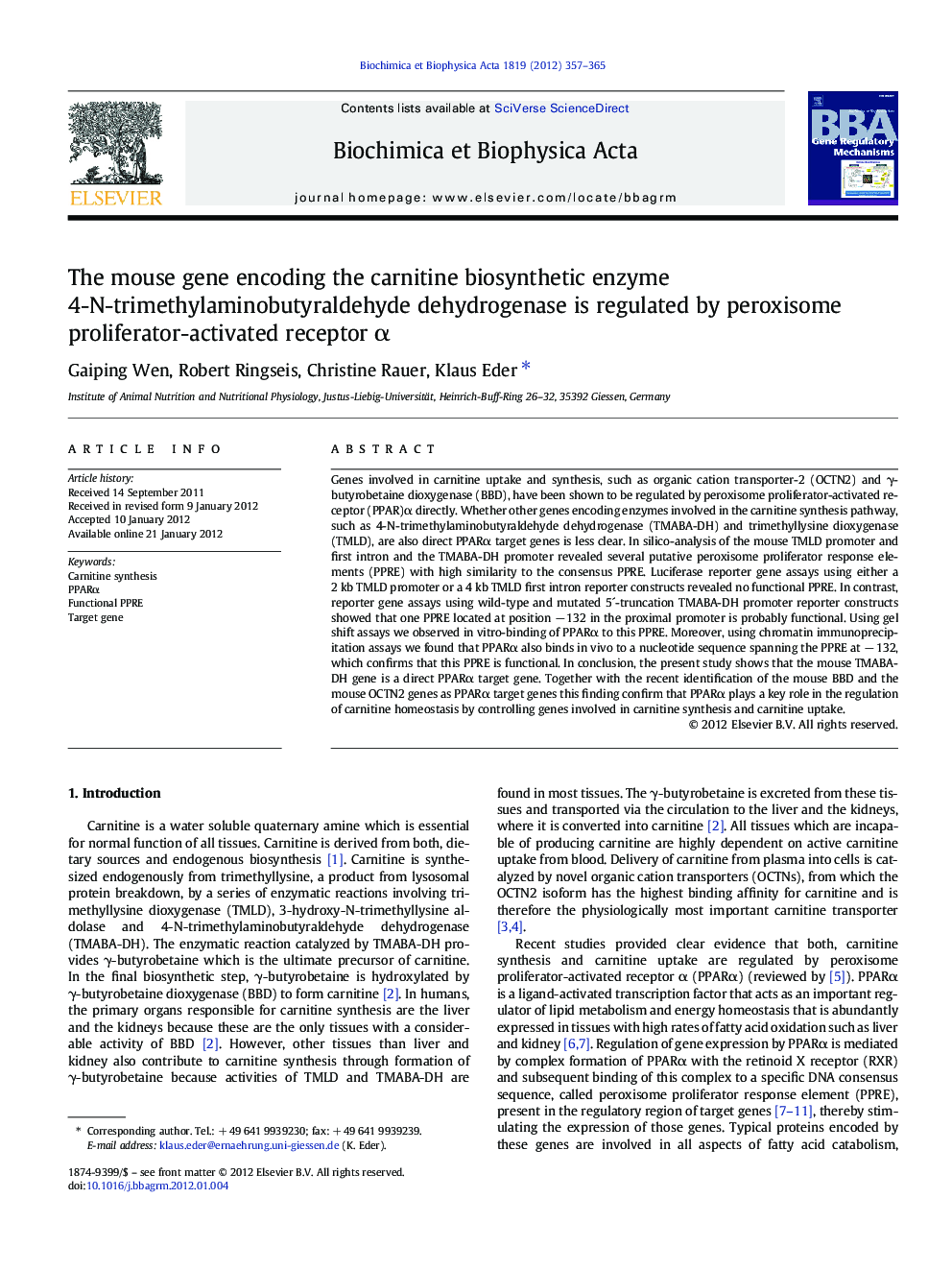| Article ID | Journal | Published Year | Pages | File Type |
|---|---|---|---|---|
| 1946553 | Biochimica et Biophysica Acta (BBA) - Gene Regulatory Mechanisms | 2012 | 9 Pages |
Genes involved in carnitine uptake and synthesis, such as organic cation transporter-2 (OCTN2) and γ-butyrobetaine dioxygenase (BBD), have been shown to be regulated by peroxisome proliferator-activated receptor (PPAR)α directly. Whether other genes encoding enzymes involved in the carnitine synthesis pathway, such as 4-N-trimethylaminobutyraldehyde dehydrogenase (TMABA-DH) and trimethyllysine dioxygenase (TMLD), are also direct PPARα target genes is less clear. In silico-analysis of the mouse TMLD promoter and first intron and the TMABA-DH promoter revealed several putative peroxisome proliferator response elements (PPRE) with high similarity to the consensus PPRE. Luciferase reporter gene assays using either a 2 kb TMLD promoter or a 4 kb TMLD first intron reporter constructs revealed no functional PPRE. In contrast, reporter gene assays using wild-type and mutated 5´-truncation TMABA-DH promoter reporter constructs showed that one PPRE located at position − 132 in the proximal promoter is probably functional. Using gel shift assays we observed in vitro-binding of PPARα to this PPRE. Moreover, using chromatin immunoprecipitation assays we found that PPARα also binds in vivo to a nucleotide sequence spanning the PPRE at − 132, which confirms that this PPRE is functional. In conclusion, the present study shows that the mouse TMABA-DH gene is a direct PPARα target gene. Together with the recent identification of the mouse BBD and the mouse OCTN2 genes as PPARα target genes this finding confirm that PPARα plays a key role in the regulation of carnitine homeostasis by controlling genes involved in carnitine synthesis and carnitine uptake.
► The mouse TMABA-DH promoter is transcriptionally activated by PPARα. ► EMSA demonstrates in vitro-binding of PPARα to one PPRE in the TMABA-DH promoter. ► ChIP assay shows in vivo-binding of PPARα to the PPRE of TMABA-DH promoter. ► the TMLD promoter and first intron contains no functional PPRE. ► The mouse TMLD gene is not regulated by PPARα.
